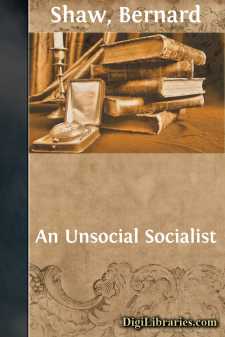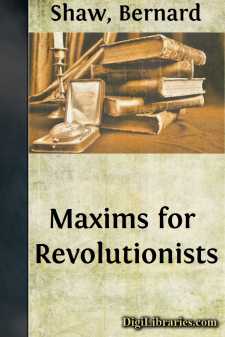Categories
- Antiques & Collectibles 13
- Architecture 36
- Art 48
- Bibles 22
- Biography & Autobiography 813
- Body, Mind & Spirit 142
- Business & Economics 28
- Children's Books 15
- Children's Fiction 12
- Computers 4
- Cooking 94
- Crafts & Hobbies 4
- Drama 346
- Education 46
- Family & Relationships 57
- Fiction 11828
- Games 19
- Gardening 17
- Health & Fitness 34
- History 1377
- House & Home 1
- Humor 147
- Juvenile Fiction 1873
- Juvenile Nonfiction 202
- Language Arts & Disciplines 88
- Law 16
- Literary Collections 686
- Literary Criticism 179
- Mathematics 13
- Medical 41
- Music 40
- Nature 179
- Non-Classifiable 1768
- Performing Arts 7
- Periodicals 1453
- Philosophy 64
- Photography 2
- Poetry 896
- Political Science 203
- Psychology 42
- Reference 154
- Religion 513
- Science 126
- Self-Help 84
- Social Science 81
- Sports & Recreation 34
- Study Aids 3
- Technology & Engineering 59
- Transportation 23
- Travel 463
- True Crime 29
Bernard Shaw
Bernard Shaw, commonly known as George Bernard Shaw, was an Irish playwright, critic, and polemicist born on July 26, 1856, and passed away on November 2, 1950. He was a prominent figure in British theatre, renowned for his wit, satirical style, and incisive social commentary, with notable works including "Pygmalion" and "Man and Superman." Shaw received the Nobel Prize in Literature in 1925 for his contributions to literature and was a co-founder of the London School of Economics.
Author's Books:
Sort by:
by:
Bernard Shaw
PROLOGUE Overture; forest sounds, roaring of lions, Christian hymn faintly. A jungle path. A lion's roar, a melancholy suffering roar, comes from the jungle. It is repeated nearer. The lion limps from the jungle on three legs, holding up his right forepaw, in which a huge thorn sticks. He sits down and contemplates it. He licks it. He shakes it. He tries to extract it by scraping it along the...
more...
by:
Bernard Shaw
PREFACE Like many other works of mine, this playlet is a piece d'occasion. In 1905 it happened that Mr Arnold Daly, who was then playing the part of Napoleon in The Man of Destiny in New York, found that whilst the play was too long to take a secondary place in the evening's performance, it was too short to suffice by itself. I therefore took advantage of four days continuous rain during a...
more...
by:
Bernard Shaw
PROLOGUE The tableau curtains are closed. An English archdeacon comes through them in a condition of extreme irritation. He speaks through the curtains to someone behind them. THE ARCHDEACON. Once for all, Ermyntrude, I cannot afford to maintain you in your present extravagance. [He goes to a flight of steps leading to the stalls and sits down disconsolately on the top step. A fashionably dressed lady...
more...
by:
Bernard Shaw
How the Play came to be Written I had better explain why, in this little piece d'occasion, written for a performance in aid of the funds of the project for establishing a National Theatre as a memorial to Shakespear, I have identified the Dark Lady with Mistress Mary Fitton. First, let me say that I do not contend that the Dark Lady was Mary Fitton, because when the case in Mary's favor (or...
more...
by:
Bernard Shaw
CHAPTER I In the dusk of an October evening, a sensible looking woman of forty came out through an oaken door to a broad landing on the first floor of an old English country-house. A braid of her hair had fallen forward as if she had been stooping over book or pen; and she stood for a moment to smooth it, and to gaze contemplatively—not in the least sentimentally—through the tall, narrow window....
more...
by:
Bernard Shaw
ACT I [Summer afternoon in a cottage garden on the eastern slope of a hill a little south of Haslemere in Surrey. Looking up the hill, the cottage is seen in the left hand corner of the garden, with its thatched roof and porch, and a large latticed window to the left of the porch. A paling completely shuts in the garden, except for a gate on the right. The common rises uphill beyond the paling to the...
more...
by:
Bernard Shaw
The Child is Father to the Man Is he? Then in the name of common sense why do we always treat children on the assumption that the man is father to the child? Oh, these fathers! And we are not content with fathers: we must have godfathers, forgetting that the child is godfather to the man. Has it ever struck you as curious that in a country where the first article of belief is that every child is born...
more...
by:
Bernard Shaw
It is not the fault of our doctors that the medical service of the community, as at present provided for, is a murderous absurdity. That any sane nation, having observed that you could provide for the supply of bread by giving bakers a pecuniary interest in baking for you, should go on to give a surgeon a pecuniary interest in cutting off your leg, is enough to make one despair of political humanity....
more...
by:
Bernard Shaw
THE GOLDEN RULE Do not do unto others as you would that they should do unto you. Their tastes may not be the same. Never resist temptation: prove all things: hold fast that which is good. Do not love your neighbor as yourself. If you are on good terms with yourself it is an impertinence: if on bad, an injury. The golden rule is that there are no golden rules. The art of government is the organization...
more...
by:
Bernard Shaw
FOREWORD A revolutionist is one who desires to discard the existing social order and try another. The constitution of England is revolutionary. To a Russian or Anglo-Indian bureaucrat, a general election is as much a revolution as a referendum or plebiscite in which the people fight instead of voting. The French Revolution overthrew one set of rulers and substituted another with different interests and...
more...











